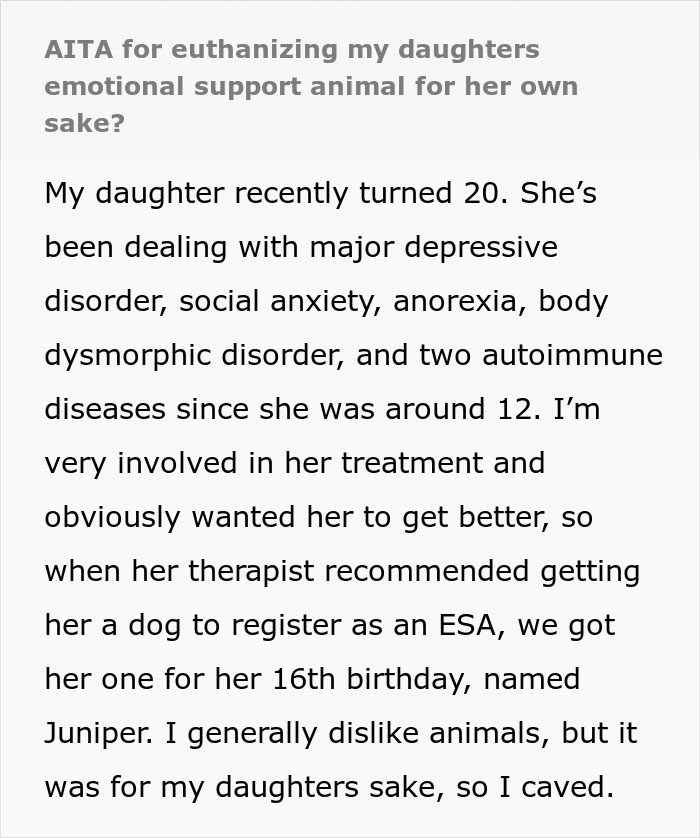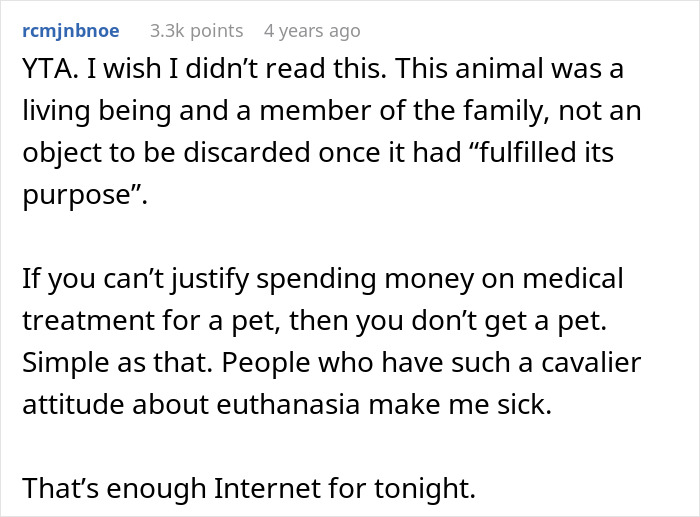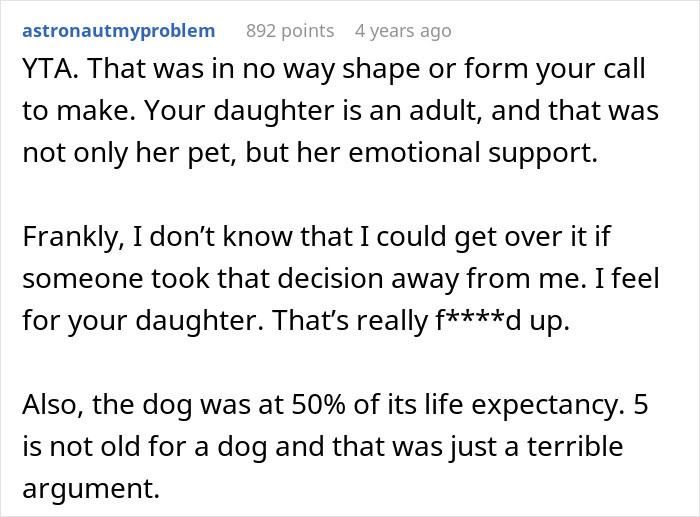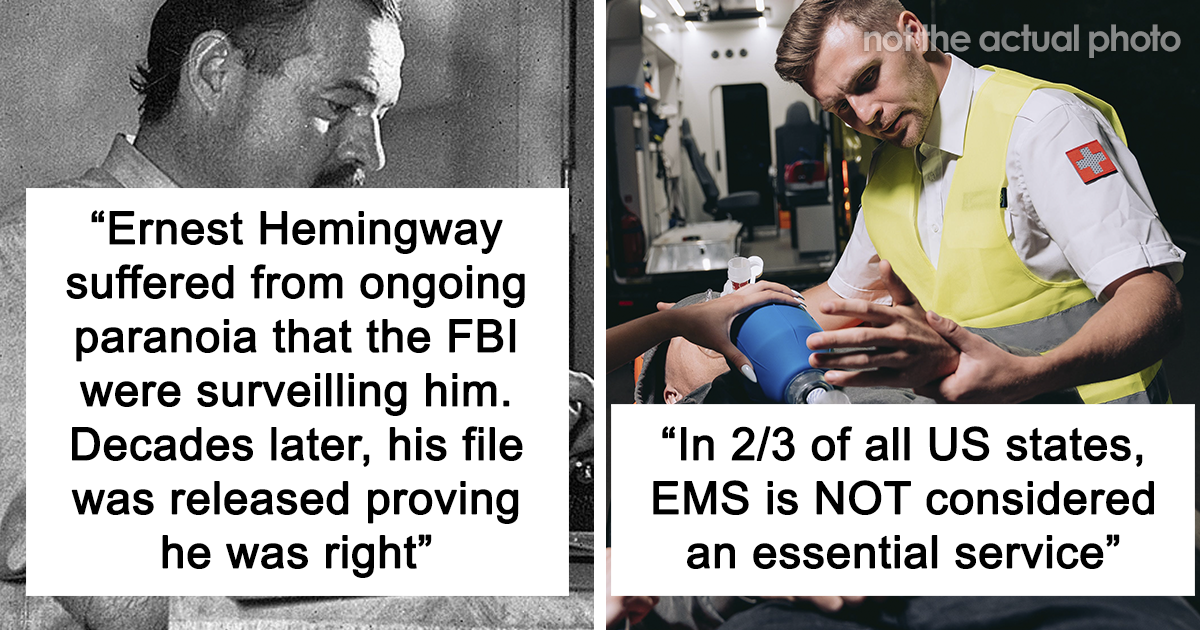We’ve long noticed that pets bring an immediate sense of comfort, but they can be especially helpful for people suffering from conditions like epilepsy, depression, anxiety, or post-traumatic stress disorder (PTSD). Having an emotional support animal by their side can help them reduce loneliness, stress, and alertness to danger.
For this family, having an emotional support dog helped their daughter, who is struggling with several disorders feel more independent and confident. However, they were only able to get four years together before the pet was tragically hit by a car. The dad refused to pay the steep $2000 vet bill and found an alternative, majorly freaking out his daughter.
Emotional support animals are great at helping someone struggling with depression, anxiety, or PTSD

Image credits: gpointstudio (not the actual image)
However, this daughter’s emotional support dog was euthanized because her dad refused to pay a steep vet bill






Image credits: Prostock-studio (not the actual image)










Image credits: [deleted]
The purpose of having an emotional support dog is to reduce the impairment related to physical or mental health conditions
Emotional support dogs aren’t just simple pets. The purpose of having them is to reduce the impairment related to physical or mental health conditions. But that doesn’t necessarily mean that they need specific training for it. Unlike service dogs trained to perform tangible tasks for their owner, emotional support dogs help them by interacting, comforting, or being with them.
Licensed psychologist Aubrey H. Fine told Business Insider that having this type of animal can be helpful as petting calms a person who’s having a panic attack and taking care of them can provide a sense of purpose for those who have severe depression. They also prevent individuals from isolating themselves by getting them outside for walks. Additionally, knowing that a dog is guarding their home may help reduce fear related to PTSD.
The only requirement to qualify for an emotional support dog is to have a disability and an animal that helps with the symptoms. And as long as it significantly helps the person, the particular condition doesn’t really matter. There’s no registry or evaluation required as well. Instead, the doctor or mental health provider issues a letter verifying that the person needs the animal to reduce a disability.
However, unlike service dogs, they have limited access to some places, like restaurants or stores. Under US federal and state laws business owners aren’t required to let them in and they don’t have any special privileges on public transportation or airplanes.
That said, “no pets” policies don’t apply to them when it comes to housing. Landlords aren’t allowed to charge extra for tenants with emotional support dogs as well. And since the person has a letter verifying their situation, the dog is protected under the Fair Housing Act and they can send a copy to any landlord or housing provider.
Losing a pet to euthanasia is especially difficult, as the decision-making can feel like a heavy and painful responsibility
Knowing that pets play an important part in many people’s lives, losing one can be a painful experience, similar to one of a loved human. If the animal was a working, service, or therapy dog the person would not only be mourning a furry friend but also the loss of a coworker, independence, and emotional support. In cases where the individual lived alone and the pet was their only companion coming to terms with it can be even harder.
Losing a pet to euthanasia is especially difficult, as the decision-making can feel like a heavy and painful responsibility. Not being able to understand what the pet is going through can burden a person even more, while not having the funds to prolong their life can summon a sense of guilt.
During this time it’s important to be compassionate and kind as the person is dealing with loss and many conflicting emotions that come with it. Something that can provide support is surrounding yourself with people who understand your grief and what you’ve been through. Having someone to talk to through any mixed feelings associated with losing a loved pet is beneficial.
Looking after one’s emotional and physical needs will help to get through the difficult time easier too. Eating healthy, getting plenty of sleep, and exercising release happy hormones and boost the mood. Rituals like a funeral, journaling, and ways to memorialize the pet might also accelerate the healing process.
Even though at times the sadness might feel too much, healthy grief typically still allows for rays of light like joy and laughter. However, if a person gets stuck in the grieving process, and constantly feels guilty, lonely, and fearful going to grief councelling might be a good path to take toward healing.
Commenters found the father to be completely in the wrong



























 English (US) ·
English (US) ·